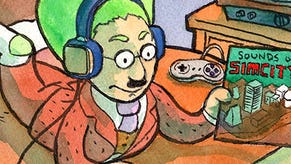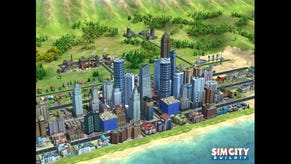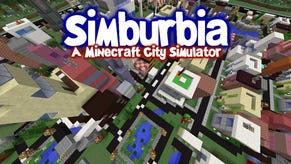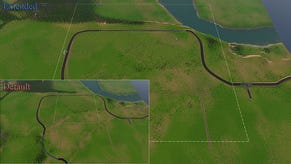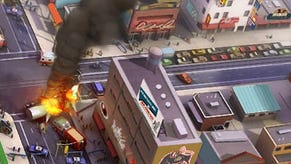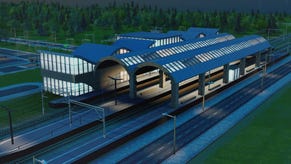SimCity: the blueprints of an engaging experience
SimCity is going through a rebirth of sorts; taking full advantage of all the perks that modern hardware affords. Producer Jason Haber runs us through what it takes to be a mayor of SimCity town.
One of the dirty secrets of the SimCity franchise is that it’s never really been able to fully simulate the various goings on of a particular city. This is because of the shortcomings of hardware of yesteryear; but now in a gaming age of speedy computer hardware, this dirty secret is a thing of the past. Maxis producer Jason Haber talks us through some of the town planning behind the SimCity reboot.
VG247: I actually read your bio which, as I understand it, is rare for games journalists, so I have some very specific questions; but they do relate to SimCity. Can you tell me what it’s like moving from the more combat-like Spore and Darkspore to the very combat-less SimCity?
Jason Haber: I don’t know if I’d call Spore a combat title.
I know, but Darkspore was.
Yes, that definitely was. The interesting thing about moving from those games over to SimCity is where we can take the things that we were really by inspired by in, say, Spore and brought to SimCity. Obviously, the building editor: the idea that you can open up a structure and add additional modules. When you have an editor like that, making sure that it’s a lot more intriguing when each of the modules or the additions—whether it’s a park in Spore or a module in SimCity—really has a direct influence on how the game plays. Being able to know that from the start, and making it very overt in SimCity is the idea that when you, for instance, put down another garage on your fire station, you get another fire truck that rides around the city. It makes it very clear to the player and very impactful in the game. It just makes it feel more realistic in SimCity.
Your bio says you have a degree in psychology: how does that influence how you shape games?
Well, I actually have a double-degree in psychology and computer science. Having both of those degrees really gives me an interesting insight into how to be empathetic with the player in how they play the game. As a producer, that’s a really important part of my job: to understand how your players are going to respond to what you do, and being able to put yourself in their shoes. Having a computer science degree really helps me understand how the system works and how it’s being built. It’s enough that I can at least understand what programmers are saying to me to some extent, which really makes a big difference.
Your bio says that you’re passionate for indie and classic games: what have you taken from those types of games and pushed into something that’s a whole lot more AAA?
Every game out there has good ideas in it. I mean, it’s hard to say there’s no such thing as a bad game, but the indie game scene is really pushing the boundaries a little more. I think there’s a lot to learn from that, and I take a lot away from those games. Part of the reason I really like classic gaming, too, is because you didn’t have the ability to do crazy graphics and crazy cool-looking things. It was really about having good core gameplay. Having a good core gameplay gives you the foundation to build a great game on.
Indie and classic games have pressure to come up with more creative solutions. Do you think that edge gets lost when the budget increases?
I think if you’re conscious of making sure that that core gameplay is there—knowing where the important experience is for the player—the bigger budget allows you to do more of that. Certainly, having an aesthetically pleasing experience is also very important; especially in this day and age. For a game like SimCity, you really want to give the player the sense that they’re creating this world. In a game like this, the look and the feel can really help drive and reinforce the gameplay that you have, and what you’re sensing as the player—as the mayor of a city. I don’t think you lose anything. I think that can potentially happen, but I don’t think we are doing that [on SimCity].
"I really like classic gaming is because it was really about having good core gameplay. Having a good core gameplay gives you the foundation to build a great game on."
How can a single city’s actions influence another city, and does that apply to single-player exclusively?
That ties into multiplayer, that’s that multi-city, regional play. You can have Sims travel between cities. You can share things like water, power or sewerage. You can share your services, like police or fire or health services. But certainly negative influences like crime can actually spill out over the borders and criminals will travel to other cities.
Can you control their movements?
You can’t. They’re just going to naturally travel that way, in the same way that Sims travel. Certainly, having good police coverage will stop that from happening. Pollution can actually also travel between cities. If I have a super-polluted city, that pollution will actually come out and blow out over other cities and cause problem.
How pedantic are the Sims? Are these really high-maintenance virtual people?
One thing to keep in mind is that this is SimCity, it’s not The Sims. You’re imagining your city-level stuff. Sims will respond to what you do, and they are easily swayed in their happiness. If you put a sewerage treatment plant right next to somebody’s house, they’re not going to be happy with you; but you don’t have to care about it. In my Garbage City [a city that collected all the garbage in the region], I didn’t care about it.
What are the perks of controlling multiple cities, instead of focusing on just one?
There are a lot of perks for that. One is it’s going to allow you to make bigger cities because you’ll have that support structure, but the city specialisation is a big part of that. By having multiple cities, not only can you make each city have its own character and its own type of specialisation but, through that sharing between cities and especially the service sharing, you’ll be able to create cities you wouldn’t normally be able to create on their own. If I have really good police coverage or really good fire coverage at a regional level, I might be able to make a city that doesn’t need police or fire coverage in its own city borders. It will allow me to create really creative, crazy-looking cities, and it can be totally supported by the other cities. It allows you to be more creative and have that city that can legitimately exist in the game and function just fine.
Can you create a self-contained utopia, or is there more of a push towards creating a specialist city at some point?
You could, but eventually you’re going to hit a ceiling of how far you can go without the support of other cities. Once you start playing multi-city, gamers are not going to want to do that. At one point I had this one main city, that was the one I was really putting a lot of my effort into and really trying to support, but I find when I play the game now, I’ll have one city that I’ll play for a while as my main city, and then I’ll eventually shift over and start working on another city. It’s usually because I need to get more workers for the first city, and I’ll start building up a city and, before I know it, I’ve built up another big city. It becomes this huge time-suck of, ‘Just one more minute. Just one more thing. I’m just going to do this, I’m just going to do this,’ and, before you know it, four hours have passed.
"Eventually you’re going to hit a ceiling of how far you can go without the support of other cities. Once you start playing multi-city, gamers are not going to want to do that."
The GlassBox engine simulates everything. How are you guys controlling the resource management in terms of being able to simulate across cities?
Whichever city you’re in is the one that’s being simulated. Whether you own one city in a region or 20 in a region, only one is running and using the full engine at once; the other ones are sort of in this stasis. The regional simulation starts taking care of where that sharing is going. Once you’ve loaded into another city, those other cities will not change from what they were when you left them.
SimCity is strangely addictive, given that there’s very little to blow up. It’s available on PC and Mac in March, 2013.





